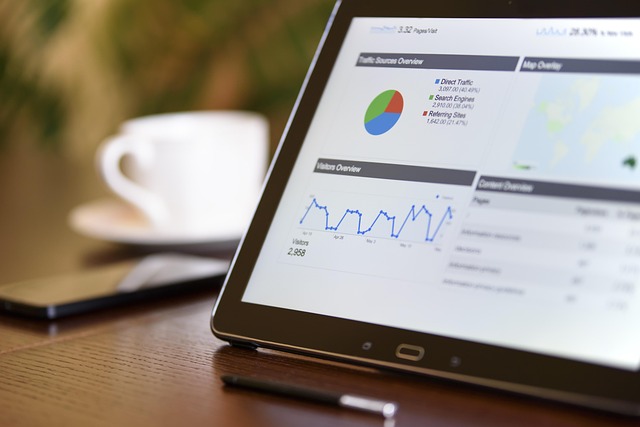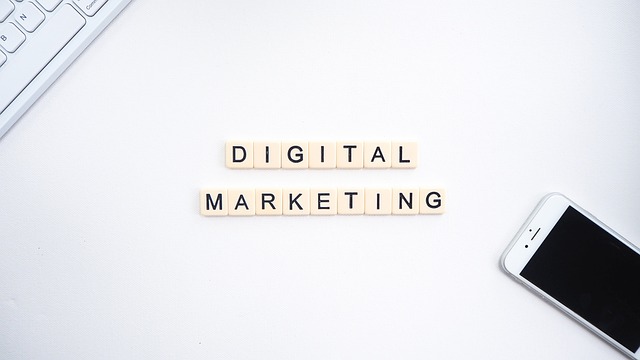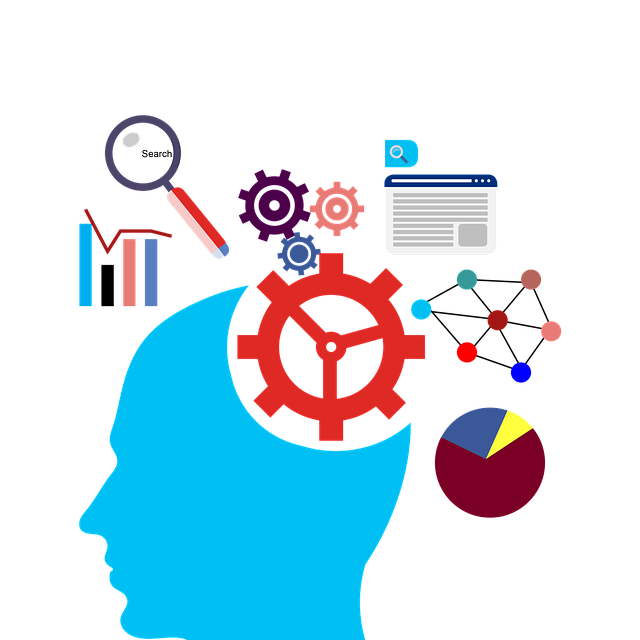Marketing automation, powered by a comprehensive Digital Marketing Course, is transforming digital marketing by enhancing audience engagement, streamlining tasks like email campaigns and social media posts, and improving overall campaign performance. A quality course should teach automation tools, workflow design, personalized customer journeys, ethical considerations, and data security practices. By leveraging automated tools like HubSpot or Marketo, businesses can optimize lead generation, refine campaigns, and drive higher ROI, setting new benchmarks for audience connection in today's digital era.
“Discover the power of Marketing Automation, a game-changer for modern businesses aiming to excel in the digital realm. This comprehensive guide offers an immersive journey through the world of automated solutions, showcasing their transformative impact on marketing strategies. From understanding core concepts to unlocking advanced analytics, this digital marketing course equips you with the knowledge to enhance efficiency. Learn about essential tools, content creation strategies, and team preparation, all vital for successful automation implementation in today’s fast-paced market.”
Understanding Marketing Automation: Unlocking Efficiency in Digital Marketing

Marketing automation has become a game-changer in the digital marketing landscape, revolutionizing how businesses connect with their audiences. It involves using software to automate and streamline various marketing tasks, from email campaigns to social media posts, enabling marketers to focus on strategic planning rather than manual execution. By implementing marketing automation tools, companies can significantly enhance efficiency, save time, and improve overall campaign performance.
A comprehensive Digital Marketing Course often includes modules dedicated to teaching participants how to harness the power of marketing automation. These courses equip students with the knowledge to select suitable software for their unique business needs, design effective automated workflows, and create personalized customer journeys. Understanding how to leverage automation allows marketers to optimize their strategies, ensuring each interaction with potential customers is timely, relevant, and impactful.
The Rise of Automated Solutions: How They Transform Marketing Strategies

In today’s digital era, marketing automation has emerged as a game-changer for businesses worldwide. The rise of automated solutions is transforming traditional marketing strategies, enabling companies to streamline processes and enhance efficiency. With the help of advanced technologies and Digital Marketing Courses, marketers can now automate various tasks, from lead generation and email campaigns to social media posting and customer segmentation. This shift has not only increased productivity but also allowed for more personalized and targeted interactions with customers.
Automated systems offer a wealth of benefits, including data-driven insights, improved customer engagement, and cost savings. By leveraging these solutions, marketers can focus on strategic decision-making rather than manual, time-consuming tasks. As a result, businesses are witnessing enhanced ROI and better overall performance. This evolution in marketing automation is setting new standards for how companies connect with their audiences, paving the way for more innovative and effective Digital Marketing strategies.
Key Components of a Comprehensive Marketing Automation Training Program

A comprehensive Marketing Automation Training program should incorporate several key components to ensure a robust understanding and effective application in today’s digital landscape. Firstly, it must cover the fundamentals of digital marketing, providing a solid base for participants. This includes an introduction to marketing automation tools, their history, and how they have evolved to become indispensable in modern marketing strategies. A well-structured course should break down complex concepts into digestible modules, making it accessible to learners with varying levels of expertise.
Practical exercises and hands-on training are essential elements. Participants should gain experience in setting up automation workflows, designing effective campaigns, and measuring key performance indicators (KPIs). Case studies from real-world scenarios can offer valuable insights, enabling trainees to learn from successful implementations and mistakes alike. Moreover, a Digital Marketing Course should emphasize the ethical considerations of marketing automation, privacy regulations, and data security, ensuring that future marketers adhere to industry best practices.
Benefits of Implementing Marketing Automation for Modern Businesses

In today’s digital era, Marketing Automation has emerged as a game-changer for modern businesses. By implementing automation tools and platforms, companies can streamline their marketing processes and enhance overall efficiency. A Digital Marketing Course often emphasizes this shift, teaching participants how to leverage automation to manage campaigns, segment customers, and personalize communications at scale. This not only saves time but also enables marketers to focus on strategic initiatives that drive growth and engagement.
One of the key benefits is improved customer experience. Automation allows for personalized interactions with customers across various channels, creating a seamless journey from awareness to conversion and retention. Additionally, Marketing Automation can optimize lead generation by nurturing prospects through targeted content and automated email sequences, ensuring that sales teams receive qualified leads ready for closure. This strategic approach, backed by data-driven insights, helps businesses make informed decisions and stay ahead in a competitive market.
Selecting the Right Tools: A Guide to Marketing Automation Software

When embarking on a journey into Marketing Automation, selecting the right tools is akin to choosing a map for your digital marketing course. The vast array of software available can be overwhelming, but understanding your team’s needs and goals is key. Look for platforms that offer features like email automation, lead nurturing, CRM integration, and analytics tracking – essentials for streamlining your campaigns and gaining valuable insights into customer behavior.
Consider the size of your business, the complexity of your marketing strategies, and the level of customization required. Some platforms cater to small businesses with straightforward needs, while others scale for enterprise-level operations demanding advanced functionality. A robust Digital Marketing Course will equip you with the knowledge to evaluate these options, ensuring you choose software that grows with your brand’s evolving digital landscape.
Building Your Team: Preparing Staff for Effective Automation Utilization

In today’s digital era, marketing automation is no longer a nice-to-have but a necessity. To harness its full potential, building a team equipped to effectively utilize automation tools is crucial. A comprehensive Digital Marketing Course can equip staff with the knowledge and skills needed to navigate this landscape. Training should cover various aspects of marketing automation, from understanding customer journey mapping to setting up triggers and workflows in platforms like HubSpot or Marketo.
By preparing your team, you ensure that they don’t just operate tools but understand their strategic value. This enables them to optimize campaigns, personalize experiences, and ultimately drive better results. Remember, successful automation isn’t about letting technology take over; it’s about empowering your team to work smarter, not harder, by automating repetitive tasks and focusing on more creative, strategic aspects of marketing.
Creating Engaging Content: Strategies for Automated Distribution

In a comprehensive Digital Marketing Course, one of the key aspects covered is creating engaging content for automated distribution. This involves understanding that today’s consumers are bombarded with information from all angles, making it crucial to craft content that stands out and captivates them. Strategies include leveraging data-driven insights to personalize messages and tailor them to individual interests and behaviors. By segmenting audiences and using dynamic content, marketers can ensure that each recipient feels unique and valued, increasing the likelihood of engagement.
Automated distribution doesn’t mean sacrificing creativity or personalization; instead, it offers an opportunity to optimize these elements. Marketers should focus on developing high-quality, visually appealing content that resonates with their target audience. This includes utilizing various media formats—from compelling videos to interactive infographics—to deliver information in engaging ways. By combining strategic content creation with automated distribution channels, marketers can enhance brand visibility, foster meaningful connections with customers, and ultimately drive better results in their Digital Marketing Course endeavors.
Measuring Success: Analytics and Performance Evaluation in Marketing Automation

Measuring success is a pivotal aspect of any marketing strategy, and in the realm of marketing automation, it’s no different. Analytics play a crucial role in understanding the performance of automated campaigns and identifying areas for improvement. By tracking key metrics such as open rates, click-through rates (CTRs), conversion rates, and customer engagement, marketers can gain valuable insights into what tactics are resonating with their audience. These data points provide a clear picture of campaign effectiveness, enabling professionals to refine their strategies and optimize their Digital Marketing Course content for better results.
Performance evaluation is an ongoing process that helps in refining marketing automation efforts. Advanced analytics tools offer detailed reports, allowing marketers to analyze customer behavior, segment responses, and make data-driven decisions. This continuous assessment ensures that campaigns remain relevant, engaging, and aligned with the target audience’s preferences, ultimately driving better outcomes and a higher return on investment in any Digital Marketing Course.
Future Trends: Staying Ahead with Evolving Digital Marketing Automation Technologies

As we move further into the digital age, marketing automation technologies are constantly evolving and becoming more sophisticated. Staying ahead in this landscape requires continuous learning and adaptation. Enrolling in a comprehensive Digital Marketing Course is a strategic step for professionals to anticipate future trends and optimize their strategies accordingly. By staying informed about the latest advancements, marketers can leverage cutting-edge tools and techniques to enhance customer engagement and stay competitive.
One of the key future trends is personalization at scale. Artificial intelligence (AI) and machine learning algorithms enable marketers to deliver hyper-personalized content and experiences to individual customers. Additionally, the integration of Internet of Things (IoT) devices will create vast amounts of consumer data, offering valuable insights for more precise targeting and tailored campaigns. Those who invest in a Digital Marketing Course can gain the skills needed to interpret this data and leverage it for successful marketing initiatives.
